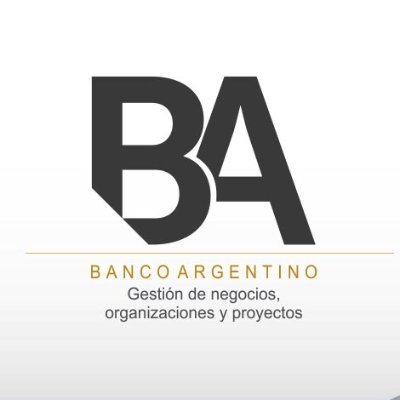Society / StudentNation / October 23, 2025
The Thai-Cambodian border conflict is just one of the many stories going underreported in the country as Trump’s funding cuts leave citizens and journalists scrambling.

A military truck transporting the belongings of a resident past the Angkor Wat temple in Siem Reap province.
(Tang Chhin Sothy / Getty)
At 65 years old, Hob Touch lived through a genocide that erased a quarter of his country’s population, two brutal civil wars, and decades of uncompleted rebuilding. Then, in 2022, the Cambodian government seized his home at Angkor—a home he’d held for generations—and forced his family to move out.
In Run Ta Ek, a relocation site 25 kilometers northeast of Angkor, Touch leaned against a plastic chair. Deep wrinkles circled his eyes, his skin leathery from years of farming in the scorching sun to support his family. But in Run Ta Ek, there’s no land to farm.
“During the Khmer Rouge, I could at least grow rice to eat,” he said, his bracelet now strands of thread slipping down his wrist. “Here, there is no rice to grow, no jobs. Life is more difficult.” Since he was forced to move here, members of the government have yet to visit, he said.
Siem Reap is the Cambodia most Americans know: temples, tuk-tuks, selfies at Angkor Wat. But since 2022, more than 40,000 Cambodians—some of them Indigenous families who have lived for generations on the land—have been forced out of their homes around Angkor to make room for tourists. The region is Asia’s most visited UNESCO World Heritage site; 214,529 Americans came to marvel at the ruins in 2024.
Now the same region has become a site of flight as many hundreds of refugees have poured in and around Siem Reap to escape the deadliest Thai-Cambodian border conflict in decades. Women give birth in makeshift camps without proper medical care. Villages are split in half by barbed wire. All the while, independent local journalists struggle to tell the stories of those in Run Ta Ek and across the country as funding for their reporting runs dry.
In January 2025, President Donald Trump signed an order to suspend foreign assistance—resulting in a devastating drop in funding for independent media, particularly in fragile or authoritarian contexts where support is most needed. He called these cuts a blow against “waste, fraud, and abuse.”
In Cambodia, they hit hard. Nearly $7 million marked for the country’s media development evaporated overnight. The move coincided with a sharp drop in Cambodia’s press freedom ranking and the closure of Voice of America, a critical source of reporting for Cambodians at home and abroad. That funding supported groups such as the Cambodian Center for Independent Media (CCIM), which trained citizen journalists in 20 provinces. Chhan Sokunthea, CCIM executive director, put it plainly: “We don’t have the budget to increase capacity, to train our citizen journalists, or even to buy basic reporting equipment.”
The Cambodian government effectively controls all national TV and radio stations broadcasting in Khmer as well as newspapers reporting in Khmer, the national language. In July, former Prime Minister Hun Sen shut down one of Cambodia’s last remaining independent media outlets ahead of national elections. And with US funds gone, the Cambodian Journalists Alliance Association, one of the last independent online newsrooms in the country, lost over half its budget. Nop Vy, the newsroom’s executive director, said they can support only three reporters. The three who remain tirelessly produced 240 stories last year, but critical coverage of labor rights, trafficking, and environmental crimes has been suspended. Investigative projects have been shelved. Reporters have been forced to take jobs as tuk-tuk drivers or wood loggers.
These cuts have already forced some of Cambodia’s last independent newsrooms to scale back operations, leaving citizen reporters to fill the gap at great personal risk. In September 2024, military police arrested Mech Dara, an award-winning Cambodian investigative journalist, while he was in his car with his family charging him with “incitement” for allegedly spreading fake news on social media. Human rights groups have denounced the accusations as politically motivated, calling the case another blow to Cambodia’s rapidly dwindling press freedom.
Dara, then 36, had been recognized by the State Department for his recent reports on human trafficking and cybercrimes that were critical of the government’s role. His reporting brought international attention and improvements in the Cambodian government’s anti-trafficking response. After his arrest, he was barred from leaving Cambodia and required to report to the police every month.
A few months later, a citizen journalist was murdered by an illegal logger amid escalating threats to reporters covering environmental crimes in Cambodia. The government revoked the visa of a British journalist for similarly reporting on environmental extraction.
Months later, the stakes have only grown. The US funding cuts came amid the deadliest clashes between Cambodia and Thailand in decades. The border has long been more than a line on the map; in the 1980s, the borderlands were dotted with camps housing Cambodians fleeing the Khmer Rouge and subsequent Vietnamese occupation. Trump once boasted of “solving” the Thai-Cambodia crisis; now his administration has ensured that barely anyone is left to describe it. Vulnerable communities, including refugees of the conflict, said they feel profoundly unheard. “Independent journalists and newsrooms are unable to match US aid with alternative donors or commercializing,” Sokunthea said.
Popular
“swipe left below to view more authors”Swipe →
Without independent reporters embedded in these communities, the picture Americans get is a distorted one: official statements, elite perspectives, and a sanitized narrative of “regional stability.” The lived reality—families displaced, farmers losing access to ancestral land, children running barefoot across militarized zones—rarely surfaces. Of course, the deeper tragedy isn’t that Americans remain oblivious—it’s that entire communities could vanish in plain sight, their silence only helped along by the slashing of US funding.
In July, Hun Dimo, a former village chief turned citizen journalist, interviewed a woman who had fled her ancestral land to a makeshift camp in Siem Reap with her disabled child. “She worried even more about her other son,” Dimo recalled, “because he was a soldier stationed at Takrabei Temple, where the battle between the Cambodian and Thai armies was hot.”
Official accounts describe the border as “stable.” Refugees who spoke to Dimo say otherwise. A woman who fled from the conflict zone delivered a baby in the camp, Dimo recalled. Usually, in the camp, there are no medical facilities or places suitable for delivery. Families use rope to attach a tarp between two trees for shelter, and meals are made between makeshift brick ovens.
Citizen journalists like Dimo cover what government news sites will not: the evicted families, the reality of refugee camps, the slow grind of dispossession. He leads the Siem Reap association for citizen journalists, a small team almost single-handedly covering the families seeking refuge from the border conflict in the city. After extreme budget cuts gutted his parent organization, CCIM, Dimo said he’s down to an iPhone and a laptop. When I met him at a cafe early one evening, he said he’d slept for just an hour. The night before, he spent 10 hours editing a broadcast video from the refugee camps—another woman had given birth with no proper medical care.
Washington’s abandonment doesn’t punish only Cambodians. It leaves Americans less safe, less informed, and more vulnerable to the very transnational scams their leaders claim to fight. In 2023, the Office of the UN High Commissioner for Human Rights reported that at least 100,000 people in Cambodia have been enslaved for the purpose of carrying out online scams. These online scams and trafficking networks continue to siphon money from Americans. Yet, as Nop Vy, director of the Cambodian Journalists Alliance Association, put it, “If local reporters cannot investigate, how will the international community even know where these scams are based?”
Without independent reporters on the ground, accounts of skirmishes and displacements are dominated by state media, leaving businesses, NGOs, and foreign governments without reliable information to gauge risk. Analysts argue that Washington’s retreat creates a credibility crisis, complicating Washington’s ability to position itself as a mediator in Southeast Asia. Am Sam Ath, operations director of LICADHO, told the Phnom Penh Post that the US has often criticized the decline of press freedom in Cambodia, yet its own actions—such as freezing or cutting off funding for VOA and RFA—have significantly impacted the media sector, especially independent journalism worldwide.
Jordan Chantha is a 19-year-old Cambodian-American living with his grandmother in Massachusetts. His grandfather lives in Cambodia, as well as his uncle, who recently celebrated the birth of his child.
Chantha’s grandmother stopped eating for days after July 25, when fighting on the Thai-Cambodia border flared. “She’d sob watching the news on Facebook,” Chantha said. He said it was a common response among elders in his community — the generation who had lived through war, genocide, and displacement, who had sought refuge in America. It was, Chantha thought, her way of returning—if not in body, then in grief. His grandma does not stop tuning in to Cambodian news from people on the ground. Most are videos from untrained sources, containing misinformation, which Chantha checks for her. Much of her worry, Chantha said, is now for her son, her daughter-in-law, and their newborn child.
“She wanted to hear news from people in her country,” Chantha recalled her saying. “Not from outsiders on another continent.”
Independent journalists are crucial to getting local news to audiences. But getting news from the ground to international audiences can mean safety issues, direct death threats or imprisonment on dubious grounds, independent journalists said.
Currently, Dara is at the Thai-Cambodia border translating for foreign outlets. It’s a miracle that he’s able to report at all, he said, after being persecuted and prosecuted by the Cambodian government. He is officially still under court supervision from his most recent arrest, he said.
The government, Dara said, is withholding permission to let Cambodian journalists near the border even if they have licenses. But the plight faced by independent journalists goes deeper than a license. He said reporting on the Thai border is “really, really tense.” But there’s a gap: “We don’t see, for example, any international media covering the consequences of the Cambodian immigrant workers coming back from Thailand,” Dara said.
Dara said publications were unable to provide him with support for medical care after years of hardship and exhaustion from his reporting. He was told by the publication he worked for that it only had mental health assistance because that was all the aid projects would pay for. This outside aid, he said, had its limits: Funding priorities could ignore what people actually needed, and bureaucracy often reduced survival to categories on a ledger.
Still without this funding, even with strings attached, independent media would be left with even fewer options. Over the years, Dara has seen trained journalists forced to become wood loggers or tuk-tuk drivers to make money. “You have all the ingredients, but you don’t have a pot to cook. There is no market here,” Dara said, referring to the job market for independent journalists. The slashing of US funding has only exacerbated the reduction in citizen journalists at a crucial moment.
In Run Ta Ek, Touch watches his grandchildren swing in hammocks hung beneath the stilts of a metal shack home. He has eight grandchildren. His youngest grandchild is 3 years old; his oldest is 20. “I feel very hopeless. My father provided nine hectares of land for me. The land I can provide for my son and daughter is a half-hectare. What will happen to my grandchildren? There is no land.”
His only requests of the government: to visit the site to see the conditions for themselves and to allow factories in Run Ta Ek so residents can earn wages. When Dimo reported on this displacement, the government quietly responded by providing buses so residents could at least travel to Siem Reap city for work. But more is needed: poor families still ride for hours under the burning sun, packed three to a motorcycle, to reach the children’s hospital in Siem Reap.
For now, it’s still the hot season in Cambodia. Shacks line the dusty roads in a strange, still quiet as families sit inside to avoid the scorching sun. Dogs sniff around Touch’s feet. One tears into a shredded plastic bag, its meal for the day. The cost of under-coverage is not just ignorance but human lives forgotten. “Foreign aid is messy,” said Vy, “but right now, it’s necessary to sustain the last independent media alive in Cambodia.”
Rani Chor
Rani Chor is a 2025 Puffin student writing fellow focusing on climate for The Nation. She is a student and journalist at Stanford University.






